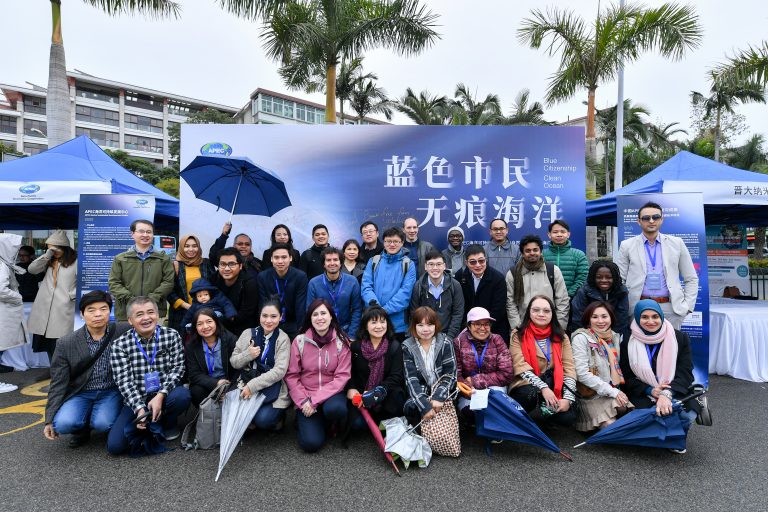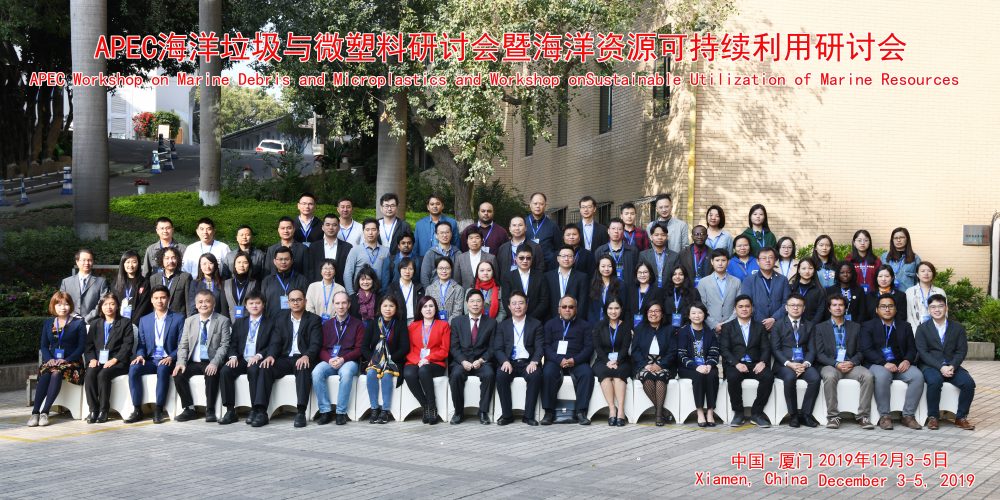APRU academic experts informed APEC officials at a workshop hosted by the APEC Marine Sustainable Development Center on Marine Debris and Microplastics held in Xiamen, China, Dec 3-5, 2019.
The discussion on governance of the Pacific Ocean and the affiliated fight against microplastics and marine debris has become dramatically important, given that plastic waste has been continuously impacting the marine eco-system, inflicting tremendous damage on coastal communities’ livelihood and posing a great threat to sustainable marine development.
APRU’s Deo Florence Onda, an assistant professor at the University of the Philippines Diliman’s Microbal Oceanography Laboratory, spoke on the role of microbes on the fate of plastics in the marine environment, and APRU’s Christelle Not, an assistant professor at the University of Hong Kong’s Department of Earth Sciences, presented her evaluation of the plastic pollution in Hong Kong and its link with the global plastic issue.
“Although we are still at the early stage of monitoring the level of plastic pollution in Hong Kong waters, we are already observing a strong spatial and temporal variability in the abundance of microplastics,” Not said.
“It is clear that this is impacting the marine ecosystem and we found that fish and crabs from Hong Kong have ingested microplastics,” she added.
The workshop was organized by the APEC Marine Sustainable Development Center and Third Institute of Oceanography, with more than 120 representatives from 11 APEC economies taking the opportunity to exchange ideas on policy, scientific research, and the public and private sectors’ participation in addressing marine debris and microplastics.
APRU contributed to the development of the Blue Citizen Partnership Initiative conceptualized to engage those who are willing to learn about the ocean and to practically involve themselves in marine environment protection.

The initiative is designed to heighten citizens’ awareness of reducing marine debris, to develop their concept of sustainable marine development, and to deepen their understanding of all the dangers that are associated with marine debris and microplastics pollution.
It aims to accelerate investment in education of marine science and scientific knowledge to address waste sorting; encourage the “greening” of industries; and promote eco-wise behaviours and lifestyles, including by motivating tourists to resolutely cut down their use of disposable plastic products. The Blue Citizens Initiative will continue to be developed within APEC.
A clean ocean is a common vision, APRU is supportive of the Blue Citizens Initiative and through the APRU Pacific Ocean Program joins the relentless pursuit of protecting the global marine community.

